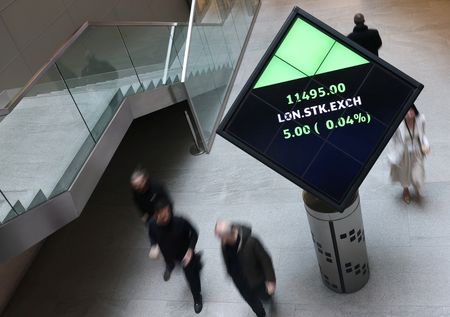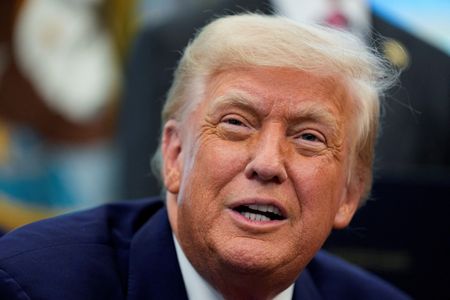(Reuters) -Britain’s main indexes rose on Monday along with the global markets after the United States and China agreed to temporarily reduce tariffs, easing investor concerns about the trade war between the world’s two largest economies.
By 1021 GMT, the blue-chip FTSE 100 was up 0.35%, while the domestically focused midcap index advanced 1%.
The U.S. will cut extra tariffs it imposed on Chinese imports in April to 30% from 145% and Chinese duties on U.S. imports will fall to 10% from 125%, the two countries said on Monday after talks in Geneva. The new measures are effective for 90 days.
The Geneva meetings were the first face-to-face interactions between senior U.S. and Chinese economic officials since U.S. President Donald Trump launched a global tariff blitz, imposing particularly hefty duties on China.
Industrial metal miners led the gains on both FTSE 100 and FTSE 250, as base metal prices rose following the news.
Glencore, Antofagasta and Anglo American, all climbed nearly 7%.
Ukraine-focused miner Ferrexpo jumped 11%, topping the midcap performers, after Ukrainian President Volodymyr Zelenskiy expressed readiness to meet his Russian counterpart Vladimir Putin in Turkey on Thursday for talks.
Luxury goods makers also rallied with Burberry Group and Watches of Switzerland Group rising rising 6.7% and 3%, respectively.
On the flip side, the healthcare subindex dropped 2.4% after Trump said on Sunday he would sign an executive order to cut prescription prices to the level paid by other high-income countries, an amount he put at 30% to 80% less.
In other developments, Britain’s foreign minister will host European peers on Monday to discuss support for Ukraine and greater regional defence cooperation in the run-up to Prime Minister Keir Starmer’s summit with European Union leaders next week.
Separately, economic surveys released on Monday point to growing pessimism among British employers regarding hiring plans after recent tax hikes and surging uncertainty in the global economy, aligning with Bank of England forecasts for a weakening labour market.
(Reporting by Ragini Mathur in Bengaluru; Editing by Shailesh Kuber)










